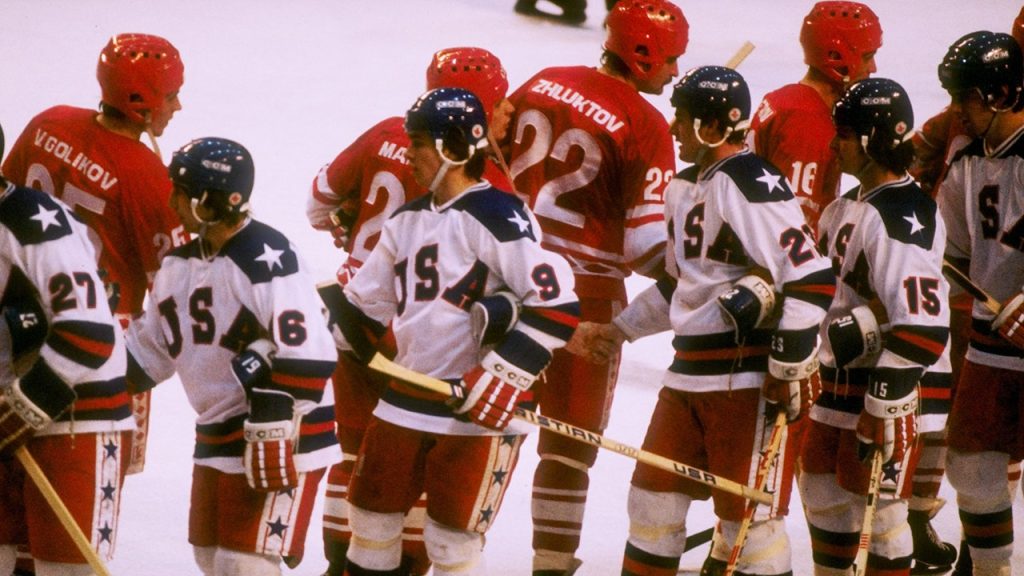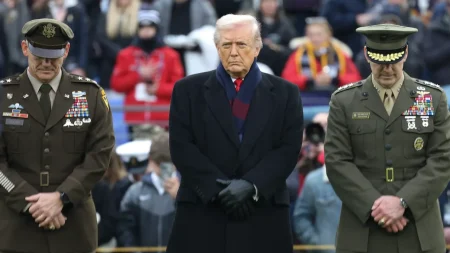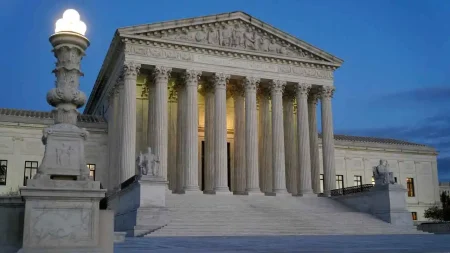The Miracle on Ice: Congressional Recognition for a Defining American Moment
In a heartwarming recognition of one of America’s most treasured sporting moments, Congress has passed the “Miracle on Ice Congressional Gold Medal Act,” which will award the 1980 U.S. Olympic hockey team with Congressional Gold Medals. This legislation, now awaiting President Trump’s signature, honors the group of young athletes who captured the nation’s imagination 45 years ago with their improbable victory over the Soviet Union en route to winning gold. The bipartisan support for this recognition speaks to how deeply this moment resonates in American culture, transcending sports to become a symbol of national pride and possibility during a challenging period of the Cold War.
“The ‘Miracle on Ice’ team represents everything our country is about: grit, determination, perseverance, and hope,” noted Representative Tom Emmer of Minnesota when speaking to Fox News Digital. His sentiment captures why this team’s achievement continues to inspire Americans nearly half a century later. This wasn’t merely a hockey game—it was a moment when a group of college players defeated what was essentially a professional Soviet team that had dominated international hockey for decades. The victory came at a time when America needed something to believe in, with the country facing economic challenges, international tensions, and a crisis of confidence. Representative Emmer added that the win “became a defining moment of unity in our nation’s history and inspired us all to believe in miracles again,” highlighting how sports can sometimes provide the perfect metaphor for overcoming seemingly insurmountable odds.
The story of the “Miracle on Ice” has all the elements of a perfect American tale—underdogs facing a seemingly invincible opponent, young athletes representing American values and determination, and a backdrop of geopolitical tension that made the victory symbolize something much greater than sports. On February 22, 1980, in Lake Placid, New York, a team coached by Herb Brooks and composed primarily of amateur and collegiate players faced off against the Soviet Union, which had won the previous four Olympic gold medals and was considered virtually unbeatable. The Soviets had defeated the Americans 10-3 in an exhibition game just days before the Olympics, making the eventual 4-3 Olympic victory even more astonishing. As broadcaster Al Michaels famously exclaimed in the final seconds, “Do you believe in miracles? YES!” This call has become enshrined in American cultural memory, capturing the disbelief and joy of that moment.
Representative Elise Stefanik of New York, whose district includes Lake Placid where the miracle unfolded, expressed pride in leading the bipartisan effort to honor the team. “The American defeat of the Soviet Union during the Cold War was a triumph of perseverance, unity, and spirit, not only for the athletes on the ice but for all Americans,” she stated. What makes this recognition particularly meaningful is that it acknowledges not just the athletic achievement but the broader cultural impact of that victory. The timing was significant—coming after a decade marked by Vietnam, Watergate, and economic struggles, and during ongoing Cold War tensions with the Soviet Union, which had recently invaded Afghanistan. The victory provided a much-needed boost to American morale and national pride, temporarily uniting a divided country in celebration.
What’s often overlooked in retelling the “Miracle on Ice” story is that the semifinal victory over the Soviets didn’t automatically secure the gold medal. The American team still needed to defeat Finland in the final match, which they did by coming from behind to win 4-2. This completed their improbable run to the gold medal—the last time the United States has claimed Olympic gold in ice hockey. The achievement has become a touchstone in American sports culture, inspiring books, documentaries, and the 2004 film “Miracle” starring Kurt Russell as Coach Herb Brooks. The Congressional Gold Medal, which is the highest civilian honor bestowed by Congress, will ensure that this team’s legacy is preserved for future generations who didn’t witness the original moment but can still draw inspiration from its message of possibility against overwhelming odds.
As this legislation moves to President Trump’s desk for signature, it serves as a reminder of how certain sporting moments transcend their immediate context to become part of our national identity and shared cultural experience. The “Miracle on Ice” team embodied quintessential American values—hard work, teamwork, perseverance, and the belief that with enough determination, even the most daunting challenges can be overcome. In honoring these athletes with Congressional Gold Medals, the nation is not just celebrating a hockey victory from four decades ago; it’s reaffirming the enduring power of that moment to inspire and unite Americans across generations. As Representative Stefanik noted, this legislation “will ensure that future generations will never forget the legacy of the ‘Miracle on Ice,'” preserving a story that continues to remind us all that sometimes, against all odds and expectations, miracles do happen.














